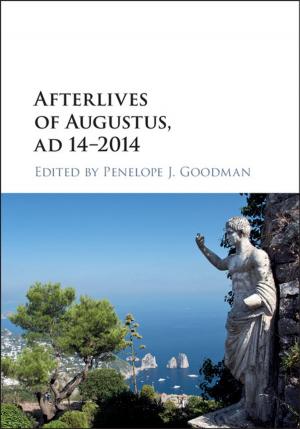Greening the Globe
World Society and Environmental Change
Nonfiction, Social & Cultural Studies, Political Science, International, International Relations, Reference & Language, Law, Social Science| Author: | Ann Hironaka | ISBN: | 9781316053928 |
| Publisher: | Cambridge University Press | Publication: | September 15, 2014 |
| Imprint: | Cambridge University Press | Language: | English |
| Author: | Ann Hironaka |
| ISBN: | 9781316053928 |
| Publisher: | Cambridge University Press |
| Publication: | September 15, 2014 |
| Imprint: | Cambridge University Press |
| Language: | English |
Recent decades have seen a rapid expansion of environmental activity in the world, including the signing of a growing number of environmental treaties and the formation of international organizations like the United Nations Environment Programme (UNEP). Greening the Globe employs world society theory (aka world polity theory or sociological institutionalism) to explore the origins and consequences of international efforts to address environmental problems. Existing scholarship seems paradoxical: case studies frequently criticize treaties and regulatory structures as weak and ineffective, yet statistical studies find improvements in environmental conditions. This book addresses this paradox by articulating a bee-swarm model of social change. International institutions rarely command the power or resources to directly impose social change. Nevertheless, they have recourse via indirect mechanisms: setting agendas, empowering various pro-environmental agents, and propagating new cultural meanings and norms. As a result, world society generates social change even if formal institutional mechanisms and sanctions are weak.
Recent decades have seen a rapid expansion of environmental activity in the world, including the signing of a growing number of environmental treaties and the formation of international organizations like the United Nations Environment Programme (UNEP). Greening the Globe employs world society theory (aka world polity theory or sociological institutionalism) to explore the origins and consequences of international efforts to address environmental problems. Existing scholarship seems paradoxical: case studies frequently criticize treaties and regulatory structures as weak and ineffective, yet statistical studies find improvements in environmental conditions. This book addresses this paradox by articulating a bee-swarm model of social change. International institutions rarely command the power or resources to directly impose social change. Nevertheless, they have recourse via indirect mechanisms: setting agendas, empowering various pro-environmental agents, and propagating new cultural meanings and norms. As a result, world society generates social change even if formal institutional mechanisms and sanctions are weak.















